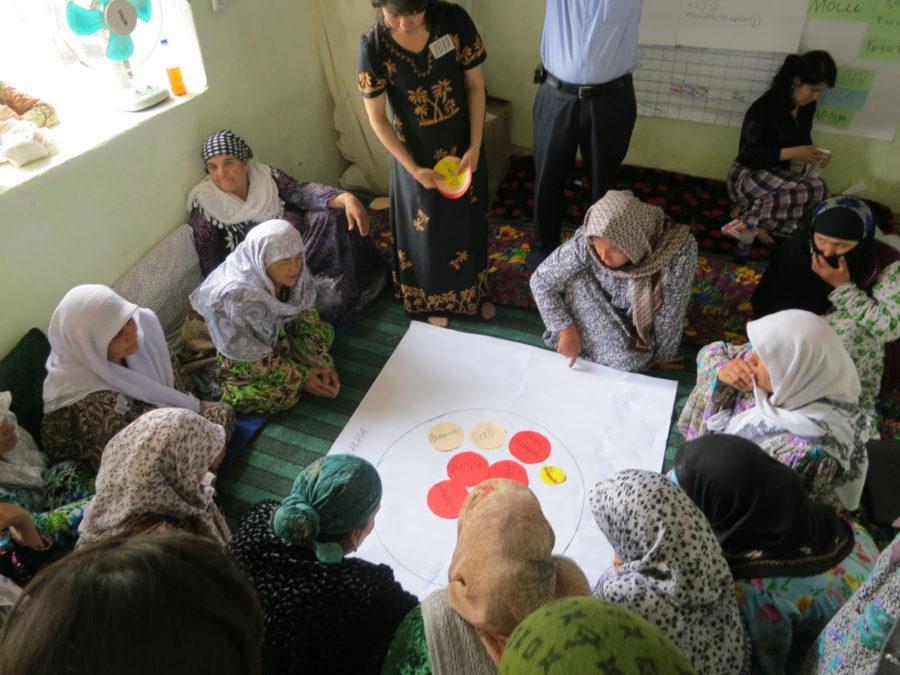ACES project receives $7 million grant to empower women farmers
Women in a farmer’s group plan an agricultural extension program for the next growing season in the Khatlon region of Tajikistan.
November 18, 2014
For women in many developing countries around the world, farming is a means of empowerment that can help them receive higher incomes and nutritional outcomes for their families.
The College of ACES was awarded $7 million by the United States Agency for International Development to continue a project known as INGENAES: Integrating Gender and Nutrition within Agricultural Extension Services. The project aims to strengthen gender-neutral farming careers and promote nutritional values for families through agricultural extension and advisory services.
Ultimatly, IGENAES aims to reduce poverty, improve food security and reduce malnutrition within eight countries ACES will work with.
“It’s about shaping and improving services in developing countries to better reach women farmers and to have more impact on nutrition,” said Paul McNamara, project director for INGENAES and associate professor in nutritional sciences. He added that the project helps the livelihood of the womens’ families.
The project will help women farmers improve their access to services and help integrate nutrition into agricultural extension programs, which will help the women find access to training, equipment and supplies necessary to farm.
Get The Daily Illini in your inbox!
INGENAES, a newly started project, stands as part of three projects ACES is contributing to, including a $12 million project working to modernize extension and advisory services, funded by USAID.
“Through the activities we will do in the developing countries we will continue to learn quite a bit,” Andrea Bohn, associate director for INGENAES, said. “We look forward to be working in the focus countries and trying to overcome problems together.”
Bohn also explained the $7 million will be spread out in three and half years amongst four major institutions who will be helping with the project. Eight countries will be selected from the existing 19 “Feed the Future” countries, a U.S. initiative to fight global hunger and improve food security. The team will select the countries over the next year and a half.
“A lot of the money will be invested in the countries for getting people together that don’t usually have the funds or the time to do this sharing of learning,” Bohn said.
The plan is also to empower women farmers by encouraging these women to operate their own agriculture and nutrition extension programs, that they hope to see grow and improve the communities.
Bohn also said this is a project that can have a strong impact for the campus.
“The project does provide the opportunity for graduate students specifically to work in our focus countries, on the ground as reflective practitioners,” Bohn said. “Our goal is to find innovative and creative ways of providing opportunities for graduate students as well.”
Katy Heinz, a graduate in global studies and communication specialist for INGENEAS, works to make the project more receptive and accessible for the general public. She said she’s learned a lot from her work in this project so far.
“I feel encouraged that the general body of stakeholders are finding value in helping women be empowered and helping farmers have slightly better outcomes,” Heinz said. “It’s a step in a direction that is trying to better this world and trying to create stronger families and healthier people.”
Estefania can be reached at [email protected].







